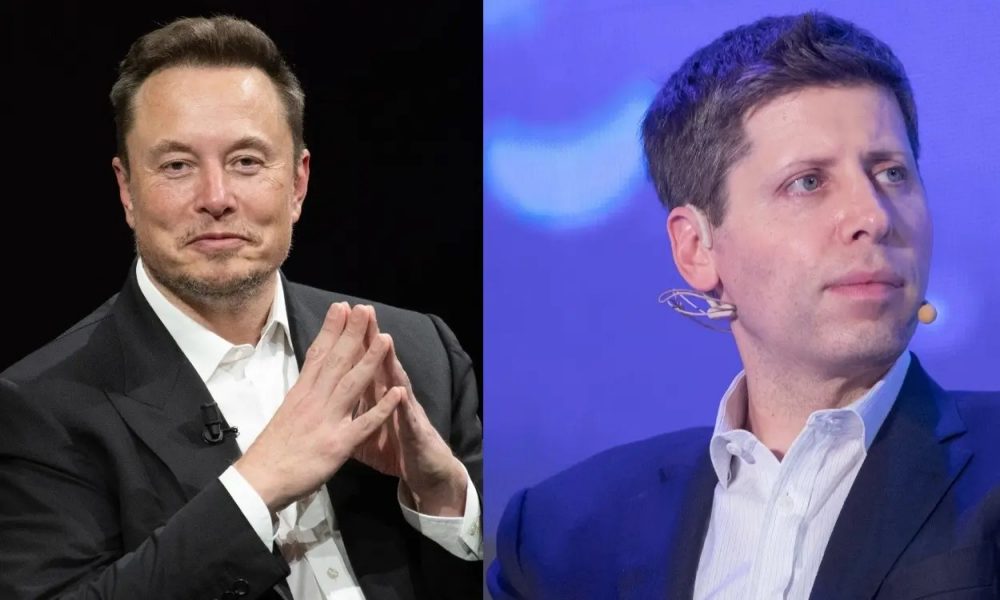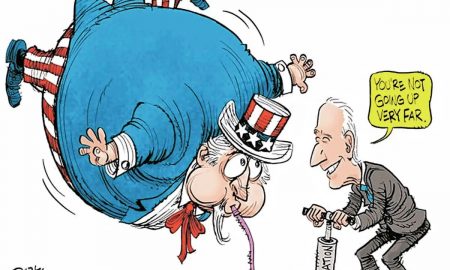
Elon Musk’s OpenAI Lawsuit | Are OpenAI’s Financial Motives Overshadowing Its Mission Statement?

A recent legal battle has rocked the world of artificial intelligence (AI). It pitted Elon Musk against OpenAI, the research company he co-founded in 2015. This lawsuit, filed in California, goes beyond a simple legal dispute; it represents a clash of philosophies and raises critical questions about the ethical and economic implications of AI development.
From Shared Vision to Diverging Paths
Musk’s lawsuit alleges that OpenAI created the “ChatGPT” AI. It claims that OpenAI has abandoned its mission. He argues that OpenAI, envisioned as a non-profit organization dedicated to the responsible development of AI for the benefit of humanity, has strayed down a path of profit-driven commercialization.

Instagram | igndotcom | Musk argues that OpenAI was initially a non-profit org committed to ethically advancing AI.
Musk says this shift started with OpenAI getting a lot of money from Microsoft. The partnership offered resources to fuel research. But, it raised concerns about conflicts of interest. In Musk’s view, this partnership jeopardized OpenAI’s independence and its original commitment to prioritizing societal well-being over financial gain.
Beyond Dollars and Cents: A Battle of Values
The lawsuit delves deeper than just financial implications. It shows a key disagreement. Musk and OpenAI’s leaders disagree about the ethics of AI development. Musk has expressed concerns about the potential dangers of AI falling into the wrong hands, particularly in the context of profit-driven development.
He is concerned that OpenAI’s move towards commercialization poses a threat to the future of humanity. In his view, Google, a significant competitor to Microsoft, may prioritize AI development solely for financial gains, potentially overlooking ethical considerations. While OpenAI collaborates with Microsoft to counterbalance Google’s influence, Musk perceives this partnership as inadequate for guaranteeing responsible and ethical AI development.

Instagram | pcmag | Musk pursues restrictions on OpenAI’s GPT-4 usage.
Technology Under Fire: The Battleground of Innovation
Elon Musk’s legal action targets specific technologies crafted by OpenAI. He aims to limit OpenAI’s utilization of its cutting-edge language model, GPT-4, preventing its exploitation for financial purposes by Microsoft or any individual. Musk contends that GPT-4 and another advanced technology known as Q* fall under the category of Artificial General Intelligence (AGI).
AGI represents a class of artificial intelligence capable of demonstrating human-like intelligence. Musk emphasizes that these technologies are exceptionally potent and advocates for their responsible and cautious use, arguing against their driven deployment for profit.
OpenAI’s Response and an Uncertain Future
OpenAI’s leaders have publicly contested several of Musk’s claims. They highlighted the ongoing struggle to balance responsible development with the need for resources. They remain committed to their mission and emphasize the importance of ongoing dialogue and collaboration in this rapidly evolving field.

Freepik | AI holds immense potential for progress in various fields.
However, the lawsuit casts a shadow over OpenAI’s future. Regulatory scrutiny related to their partnership with Microsoft further complicates the situation. With both legal challenges and regulatory hurdles, OpenAI faces a significant test as it navigates this complex landscape.
A Broader Context: AI’s Crossroads
This legal battle serves as a microcosm of the larger debate surrounding the future of AI. While AI holds immense potential for progress in various fields, concerns about its responsible development remain prevalent. Musk’s lawsuit highlights the challenges of balancing innovation, profit motives, and ethical considerations.
This goes beyond the lawsuit. It shows the crucial role of ongoing public debate on AI. The tech is powerful. It’s vital to ensure it serves humanity well. This means it should prioritize society’s well-being over unchecked commercialization.
More in Business
-
`
What Must an Entrepreneur Do After Creating a Business Plan? Here’s a Step-By-Step Guide
Many successful entrepreneurs start with a solid business plan detailing the factors of their business, such as marketing, funding, legal considerations,...
June 2, 2024 -
`
Barbie Movies Are Outperforming Other U.S. Movies in China – Here’s Why
The Barbie movie is a huge hit in China! While lots of American movies usually do not do so well there,...
April 26, 2024 -
`
Hollywood Greatest Comebacks: Actors Who Staged Remarkable Returns
Hollywood may sparkle with glitz and glamor, but it’s a tough business. Stars who once basked in the spotlight can find...
April 26, 2024 -
`
Misinformation Is the New Normal: How You Can Spot Misinformation Online
In the ever-evolving world of the Internet, where information and misinformation intertwine like vines, it is essential to know how to...
April 25, 2024 -
`
America is Rich But Americans Are Poor | This Best-Selling Book Explains Why
In the midst of America’s wealth and global dominance lies a startling and often overlooked reality: The persistent existence of poverty....
April 25, 2024 -
`
What They Don’t Teach You in School About Money
From an early age, we’re told that going to school and getting a degree will set us up for financial success....
April 24, 2024 -
`
Work Presentations: How to Say Goodbye to Boring Office Meetings
Picture this: you’re in a conference room, surrounded by colleagues. The lights dim, a projector flickers to life, and there they...
April 24, 2024 -
`
Essential Documents for Opening a Business Bank Account: Your Checklist
Embarking on the entrepreneurial journey is exhilarating, but navigating the financial side of your venture requires thoughtful consideration. One pivotal step...
April 23, 2024 -
`
Gwyneth Paltrow Was Once Called out by NASA for This Bizarre Reason!
Once upon a time, Gwyneth Paltrow was considered to be one of the most promising actresses of her time. While she...
April 23, 2024















You must be logged in to post a comment Login